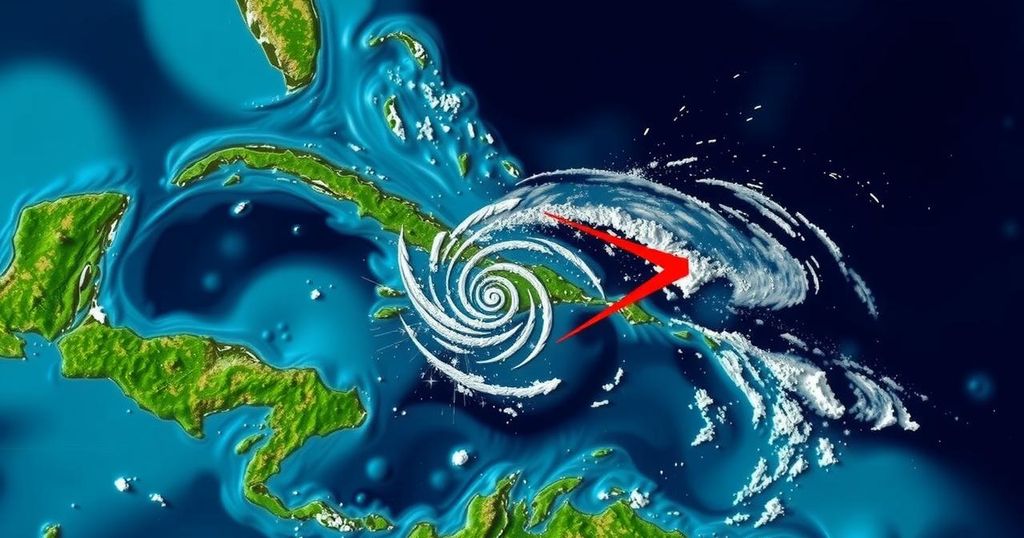Tropical Storm Oscar is progressing towards the Bahamas after making landfall in Cuba as a Category 1 hurricane, resulting in six fatalities from heavy rainfall. Currently, it has winds of 40 mph and is moving north-northeast. Oscar’s unexpected intensification into a hurricane defied forecasting models, and significant rainfall has raised flood and landslide concerns in Cuba amid existing power outages. Oscar is the 15th named storm of this busy hurricane season, which is expected to be more active due to warm ocean temperatures.
Tropical Storm Oscar is advancing toward the Bahamas after making landfall in Cuba as a Category 1 hurricane, resulting in at least six fatalities due to extensive rainfall. Currently located 45 miles south-southeast of Long Island in the Bahamas, Oscar is exhibiting winds of 40 mph and is progressing north-northeast at 12 mph, per the National Hurricane Center in Miami. Although classified as a tropical storm, its previous status as the smallest recorded hurricane—featuring a wind field of only six miles across—surprised meteorologists, as no predictive models indicated Oscar would intensify into a hurricane. Heavy rains, amounting to 15 inches in some areas of eastern Cuba, led to warnings of significant flooding and landslides. The storm struck Cuba amidst ongoing efforts to recover from a widespread blackout, which had prompted minor protests. Oscar is ranked as the 15th named storm and the 10th hurricane of the Atlantic hurricane season, forecasted to be above average due to record warm oceanic temperatures. Concurrently, Tropical Storm Kristy is developing in the Pacific Ocean, expected to escalate to hurricane strength shortly.
The formation and impact of Tropical Storm Oscar exemplify the unpredictability associated with hurricane forecasting. This year’s Atlantic hurricane season has been influenced by unprecedented warm ocean temperatures, prompting predictions of an active season. The event highlights the challenges faced by nations like Cuba, as they navigate both the physical and societal repercussions of natural disasters, particularly in the context of existing infrastructure vulnerabilities such as power outages. The situation is further complicated by public reactions to government responses in the face of emergencies, showcasing the intersection of meteorological phenomena with socio-political dynamics.
In summary, Tropical Storm Oscar has demonstrated significant impacts in the Caribbean, particularly in Cuba where its unexpected strength as a hurricane resulted in at least six deaths and extensive rainfall leading to flooding. The storm’s trajectory toward the Bahamas emphasizes the ongoing threat posed by tropical storms in the Atlantic, amid forecasts predicting a heightened hurricane season. The developments surrounding Oscar, alongside concurrent storm activities, underscore the increasing complexities in hurricane management and response efforts in vulnerable regions.
Original Source: www.washingtontimes.com






